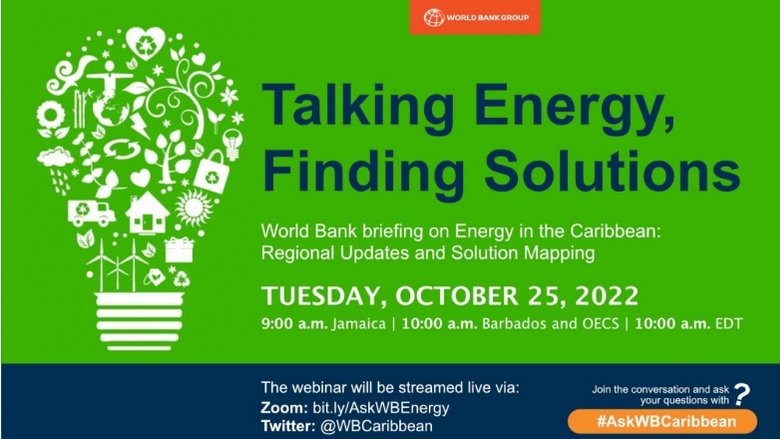Energy is at the heart of development. Energy makes possible the investments, innovations and new industries that are the engines of jobs, inclusive growth and shared prosperity for entire economies. Universal access to affordable, reliable and sustainable and modern energy – Sustainable Development Goal (SDG) 7 -- is essential to reach other SDGs and is at the center of efforts to tackle climate change.
The World Bank is committed to helping countries reach SDG7, which is central to delivering on the World Bank’s primary mandate: ending poverty and boosting shared prosperity.
The World Bank Group is taking broad, fast action to help developing countries strengthen their response and health care systems. Working with governments, the private sector, and other partners, we provide technical advice and project funding to address the pandemic and beyond.
Caribbean consumers face some of the highest energy prices globally due to heavy reliance on expensive and volatile fossil fuel imports. Electricity prices in the Caribbean average around US$ 0.25 per kWh, more than double the average price in the United States and in some countries reaches over US$ 0.40 per kWh. Out of 11 Caribbean countries with available data, nine generated more than 80 % of their electricity using imported fuels and five imported 90 % of their energy.
Across CARICOM, renewable energy is used across different countries; with 105.1 MW of solar energy; 161.85 MW of wind energy, 345.49 MW of Hydro Energy and 72.10 MW of Biomass/WTE.
With the global oil prices on the rise, the already high energy prices in the Caribbean will hike even further. This will affect the Caribbean households, especially the poorest, squeezing their income even more.
Energy prices are expected to rise more than 50 percent in 2022 before easing in 2023 and 2024. Non-energy prices, including agriculture and metals, are projected to increase almost 20 percent in 2022 and will also moderate in the following years. Nevertheless, commodity prices are expected to remain well above the most recent five-year average.
It will also have a significant impact on the economy of the region, as many countries in the Caribbean are already struggling with high debt levels and limited economic space. And it will continue to drive businesses and investors away.
The solution for the Caribbean—which is blessed with abundant renewable energy resources— lies in accelerating the clean energy transition: scaling up renewable energy for power generation, increasing energy efficiency, and electrifying the economies.
